From October 11 to 12, the 2nd International Symposium on Molecular Physiology and Evolution of Crops & the 2025 International Conference on Industry-Education-Research-Application Cooperationsuccessfully convened, guided by the Hubei Provincial Department of Education and hosted by Yangtze University. More than 300 experts and scholars from 47 universities and research institutions across 7 countries—including China, the United States, Australia, Egypt, the Democratic Republic of the Congo, Turkey and South Korea—gathered in Jingzhou to jointly explore academic issues in the field of green and efficient crop production.
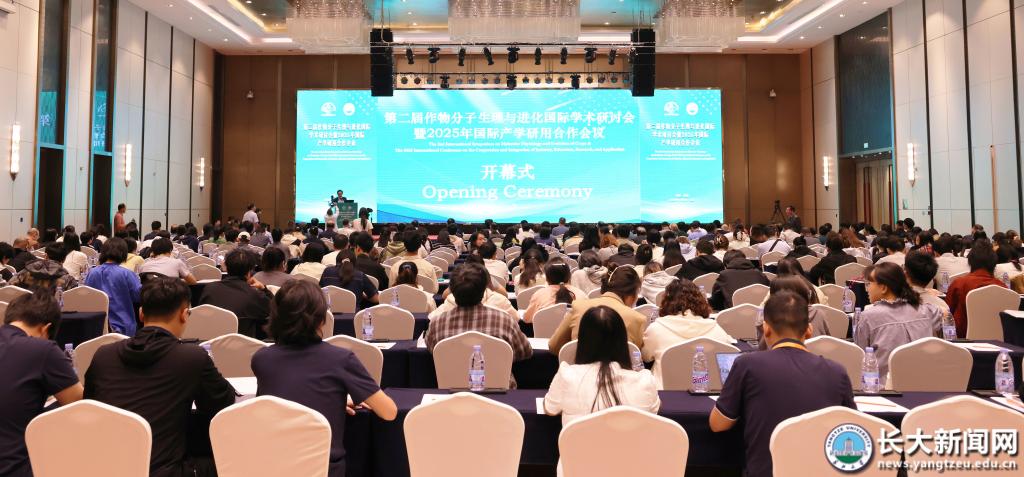
Attendees of the conference (held both online and offline) included:
• Professor Kang Zhensheng, Member of the Chinese Academy of Engineering (CAE) from Northwest A&F University;
• Researcher He Zuhua, Member of the Chinese Academy of Sciences (CAS) from the CAS Center for Excellence in Molecular Plant Sciences;
• Researcher Yang Weicai, Member of the CAS from the CAS Institute of Genetics and Developmental Biology;
• Professor Li Chengdao, Member of the Australian Academy of Technological Sciences and Engineering (ATSE) from Murdoch University;
• Professor Pamela Soltis, Member of the U.S. National Academy of Sciences (NAS) from the University of Florida;
• Lu Jinyuan, Director of the Foreign Exchange Service Center of the Hubei Provincial Department of Education;
• Liu Yongsheng, President of Yangtze University;
• Xu Feng, Vice President of Yangtze University;
• Heads of relevant departments of Yangtze University, including the Graduate School, the Office of International Exchange and Cooperation, and the College of Agriculture.
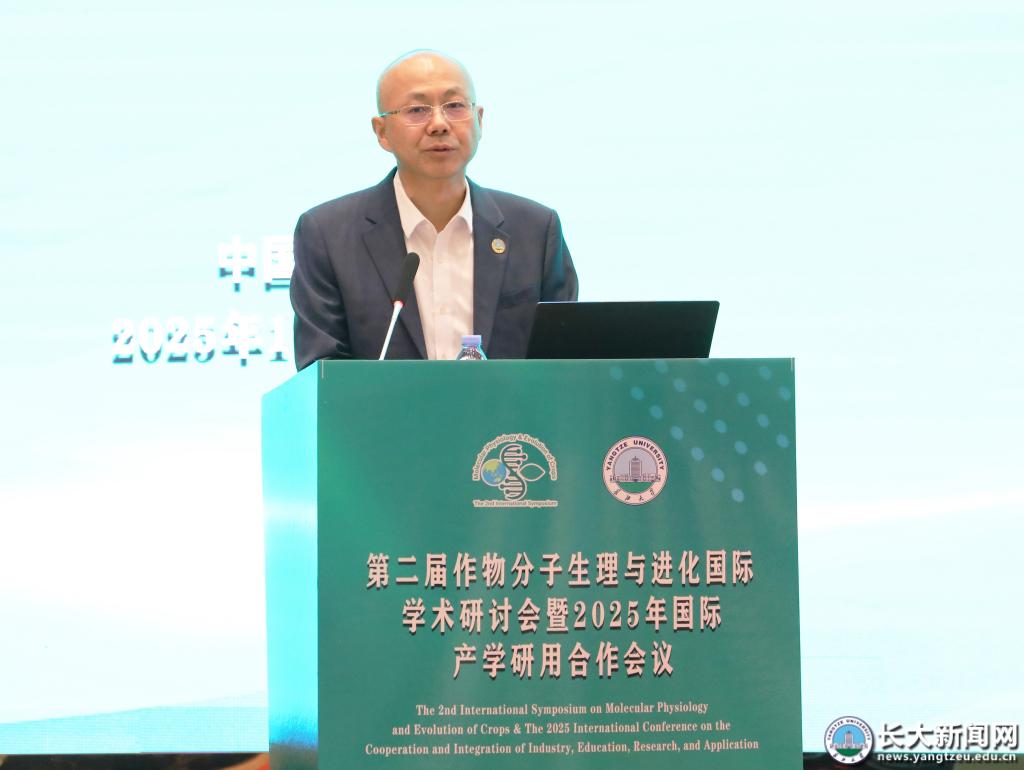
Liu Yongsheng extended a warm welcome to the leading guests, experts and scholars attending the conference on behalf of YangtzeUniversity. He pointed out that this conference focused on the major needs and future trends of green and efficient crop production, and carried great significance for promoting the in-depth integration of agricultural technological innovation and industrial innovation, as well as fostering new agricultural productive forces. After introducing the practices and achievements of the university in agricultural education, he sincerely sought to conduct exchanges and cooperation with the participating experts and scholars, and appealedto themto provide valuable insights for the university’s development of new agricultural disciplines and talent cultivation, to jointly contribute to safeguarding national and even global food security and building a community with a shared future for mankind.
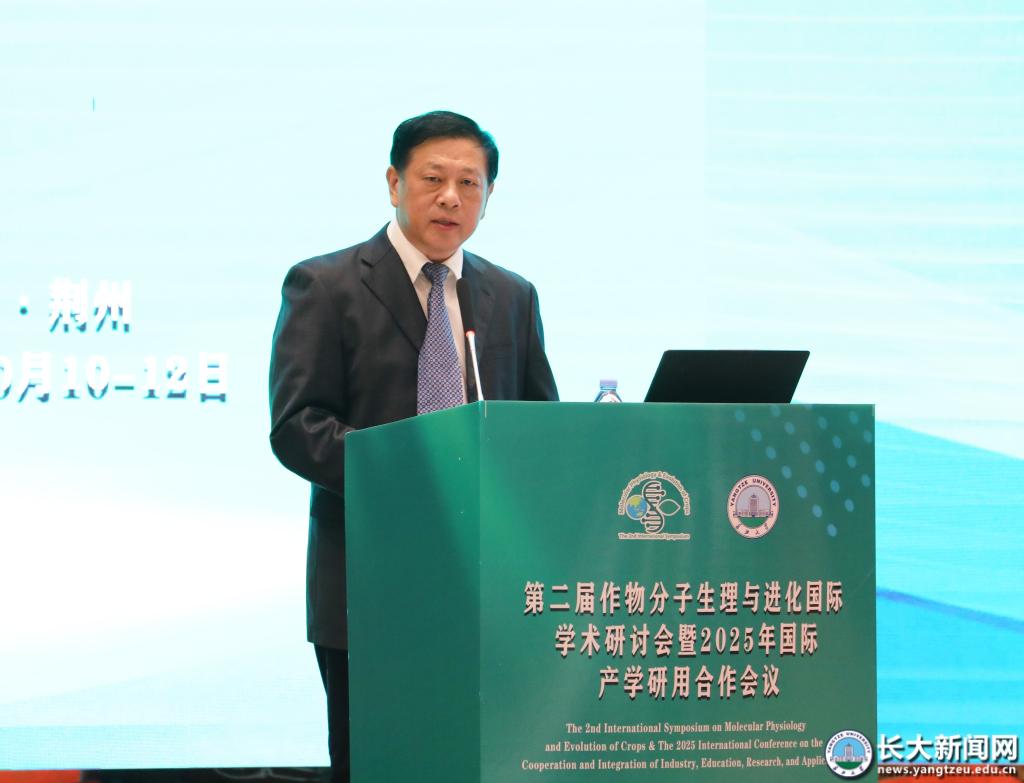
Lu Jinyuan welcomed the experts and scholars attending the conference. He reviewed the implementation and achievements of the "World Renowned Scientists Lecturing in Hubei" Program (Wuhan Forum) in recent years. He affirmed the university’s achievements in cultivating talents for the "Three Rural Issues" (agriculture, rural areas and farmers), serving rural revitalization and ensuring food security. He pointed out that this conference not only responded to the 2030 goals of the Food and Agriculture Organization (FAO) of the United Nations, but also aligned with China’s strategy of "storing grain in the land and storing grain in technology". He expected the participating experts to focus on the molecular level, solve the problems in green and efficient crop production, and contribute to building Hubei into a strong agricultural province and propelling the rise of central China.
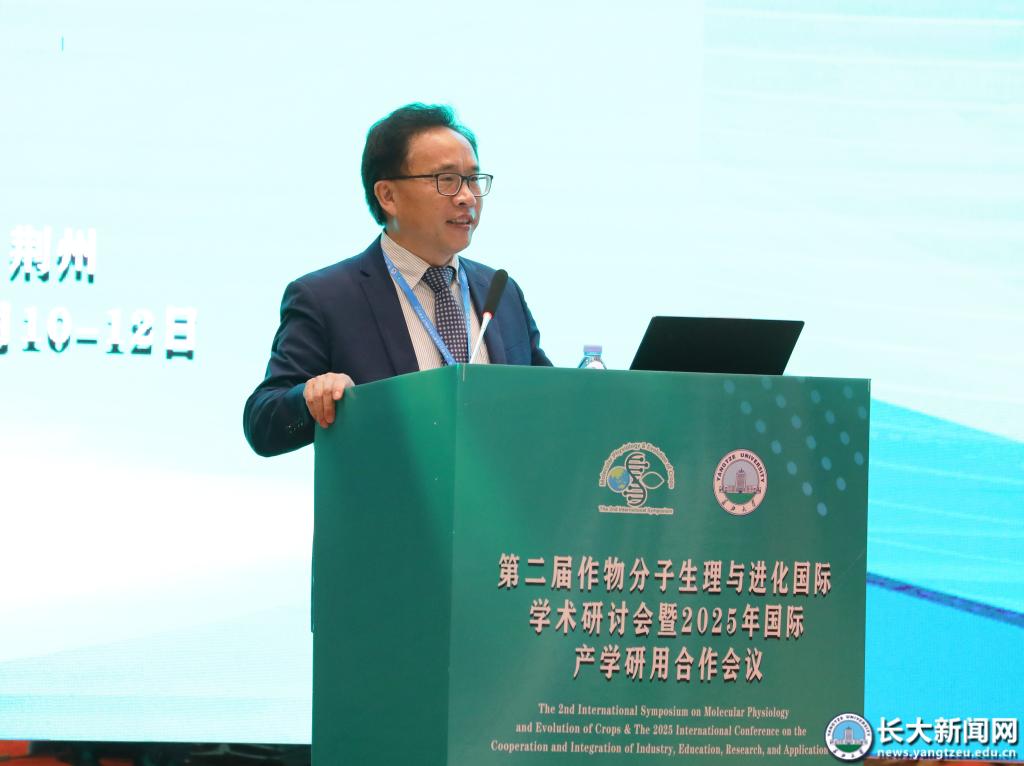
Professor Li Chengdao, Chairman of the Conference and ATSE Member, reviewed the history of the first symposium and expressed sincere gratitude to the attending experts, scholars, various organizations and supporting units. He stated that this symposium aimed to build a cross-border and interdisciplinary academic exchange platform, discuss key issues in green and efficient crop production, and conduct in-depth discussions on core topics such as growth and development, high and stable yield, and high quality and efficiency, so as to ensure food security with scientific and technological strength. He added that the conference had a tight agenda and rich content, and he looked forward to the participating scholars engaging in in-depth exchanges and sharing inspiring ideas to jointly promote global cooperation in crop science, contributing wisdom and strength to sustainable agricultural development.
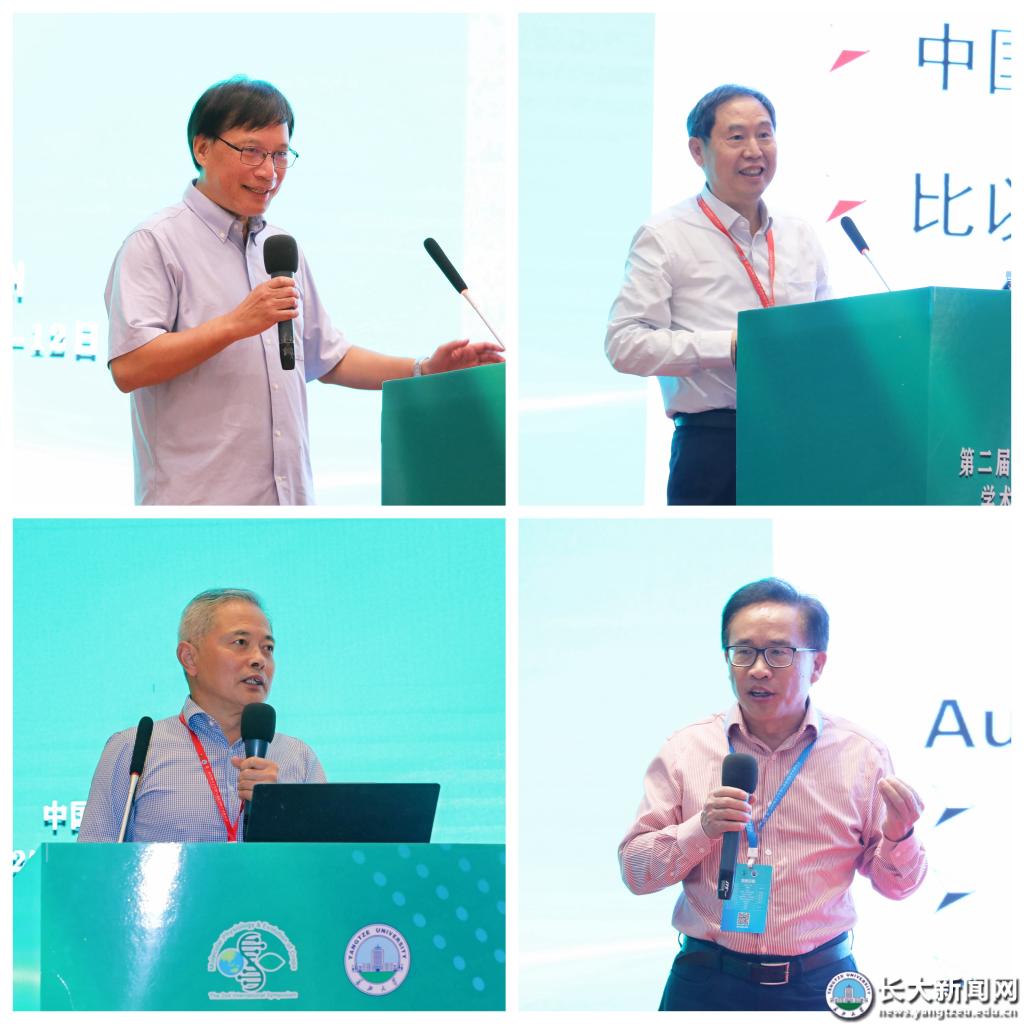
In the invited report session:
• CAS Member He Zuhua delivered a report titled Regulatory Mechanisms of Broad-Spectrum Disease Resistance and Molecular Breeding in Crops, analyzing the mechanism of broad-spectrum rice blast resistance genes and their application in molecular breeding.
• CAE Member Kang Zhensheng gave a report titled Crop Disease Resistance and Green Prevention and Control of Diseases, explaining the technical system and multiple significances of green prevention and control of crop diseases.
• NAS Member Pamela Soltis delivered an online report titled Comparative Plant Genomics: Patterns and Processes, discussing the evolutionary patterns and formation mechanisms of plant genomes.
• CAS Member Yang Weicai presented an online report titled Research on the Evolution and Function of Plant Central Cells, systematically introducing the discovery process and molecular mechanism of double fertilization in plants.
• Professor Meixue Zhou from the University of Tasmania, Australia, gave a report titled From Mechanisms to Varieties: Salinity Tolerance Without Penalties, sharing the path of breeding new salt-tolerant crop varieties based on salt tolerance locus mapping and gene pyramiding.
• ATSE Member Li Chengdao delivered a report titled Genomic Signatures for Environmental Adaptation in Barley, sharing the mechanism by which structural variations in wild barley drive ecological adaptation, revealed through barley pangenome research.
During the plenary report session, experts from home and abroad delivered reports focusing on plant evolution and growth, crop domestication and genetic improvement, and molecular mechanisms of stress response and crop adaptation. These experts included:
• Professor Sergey Shabala from the University of Western Australia;
• Professor Zhang Guoping from Zhejiang University;
• Professor Zhang Guiquan from South China Agricultural University;
• Professor Xiong Dongliang from Huazhong Agricultural University;
• Researcher Wang Wensheng from the Institute of Crop Science, Chinese Academy of Agricultural Sciences;
• Professor Li Guotian from Huazhong Agricultural University.
The conference set up 4 thematic report sessions. Thirty experts and scholars from universities and research institutions worldwide gave academic reports, covering fields such as "plant growth, physiology and development" and "new technologies, methods and progress in crop research". These institutions included:
• Ondokuz Mayıs University (Turkey);
• Kafrelsheikh University (Egypt);
• University of Lubumbashi (Democratic Republic of the Congo);
• Kangwon National University (South Korea);
• China Agricultural University;
• Nanjing Agricultural University;
• Northwest A&F University;
• Henan Agricultural University;
• Hunan Agricultural University;
• Shanghai Normal University;
• Southwest University;
• Guizhou University;
• Henan University.
The conference also established a Sino-Australian Postgraduate Forum, where 11 postgraduates reported on their research on the physiological and molecular adaptation mechanisms of crops, focusing on cutting-edge fields such as abiotic stress, plant diseases, insect pests, and metal toxicity.
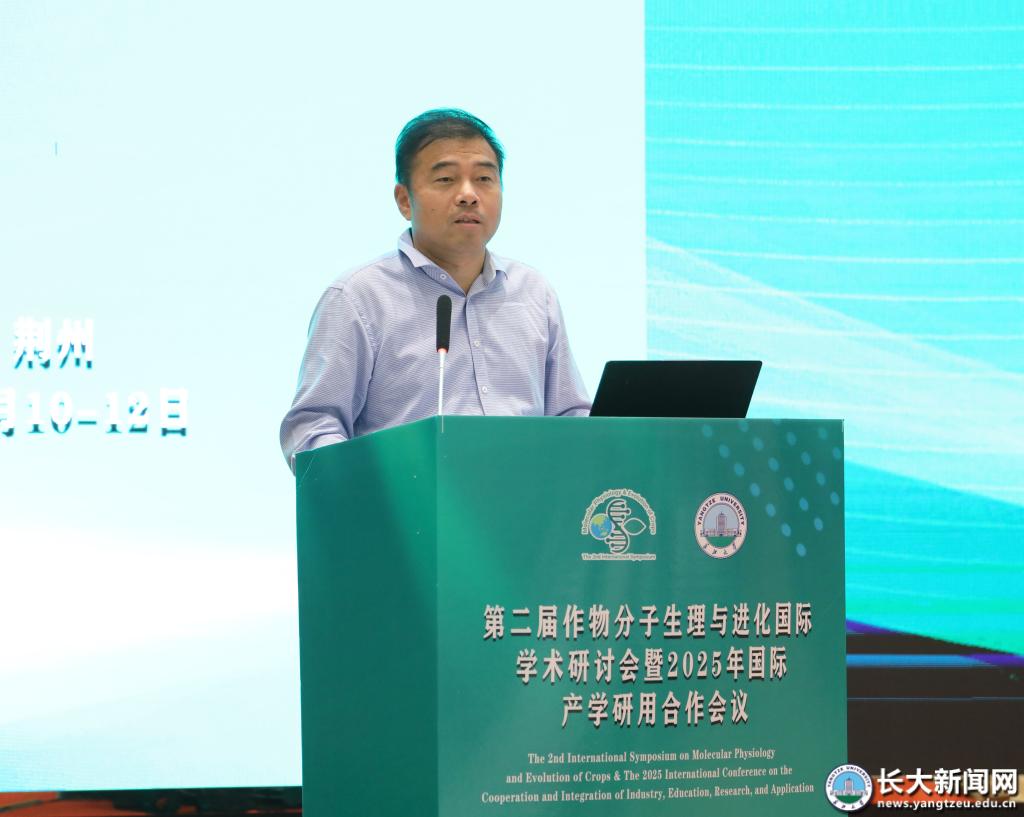
At the closing ceremony, Xu Feng congratulated the conference on its successful conclusion. He pointed out that the conference fully demonstrated the frontier achievements in this field and the sound momentum of the research team, built an international academic exchange and industry-education-research-application cooperation platform, and injected new vitality into industrial upgrading and the development of the field. He called on all experts to continue topayattention to andextendtheir support to Yangtze University, strengthening organized joint scientific research efforts, jointly promoting the innovative development of the field of crop molecular physiology and evolution, and contributing to sustainable agricultural development.
In his concluding speech, Professor Li Chengdao reviewed the holding of the conference and, on behalf of the conference organizing committee, expressed gratitude to the participating scholars, guests and organizers. He voiced expectations for intensifying scientific research collaboration and jointly sharing academic accomplishments with experts and scholars in the future, continuing to tackle key problems in the field of green and efficient crop production, and writing a new chapter in the development of crop science.
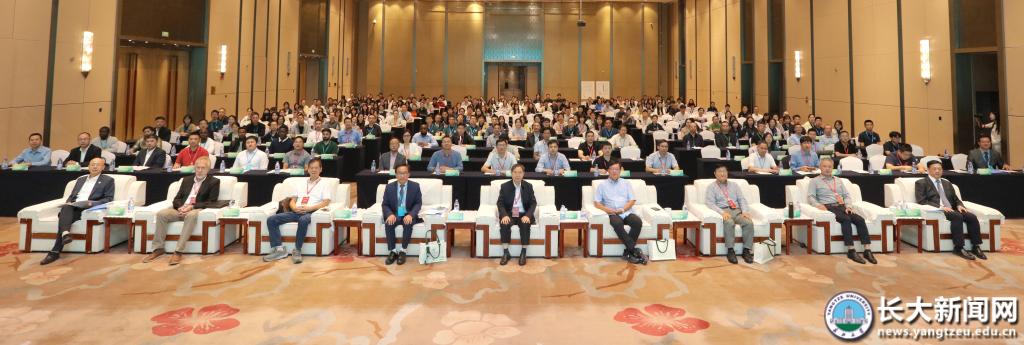
It is learned that the conference received support from programs such as the "World Renowned Scientists Lecturing in Hubei" Program (Wuhan Forum). It aimed to showcase the latest achievements and research progress in the field of molecular regulatory mechanisms of crop growth and development, physiological response and genetic improvement, promote exchanges and cooperation among domestic and foreign experts, and contribute to safeguarding national food security.